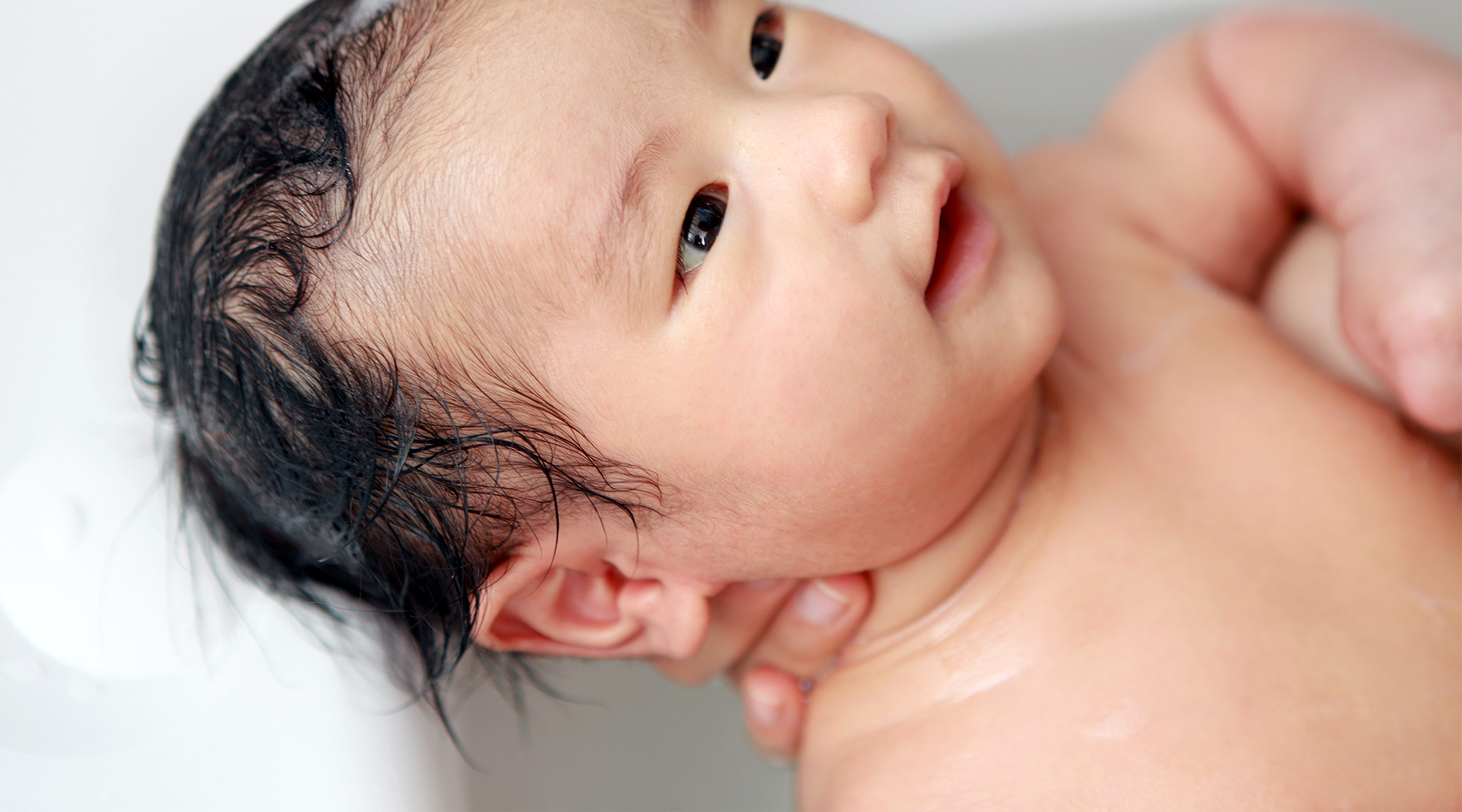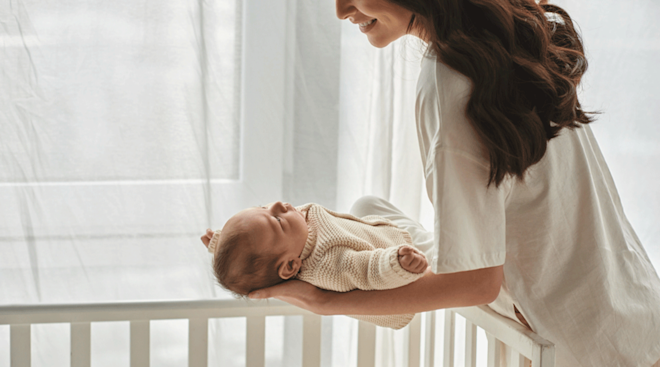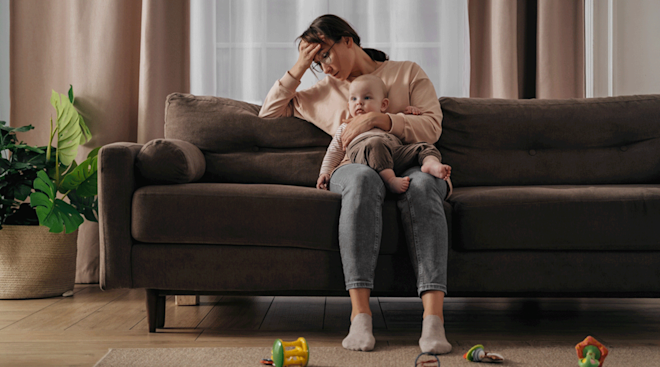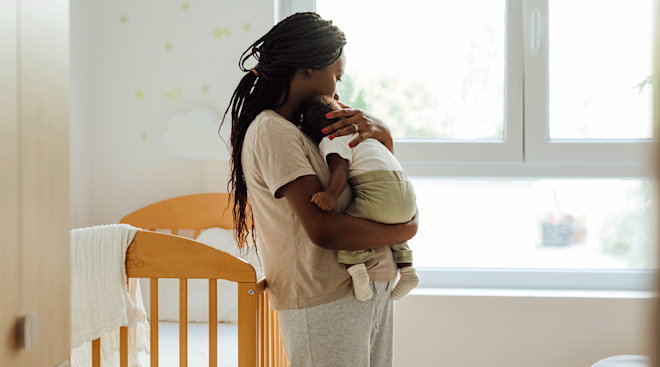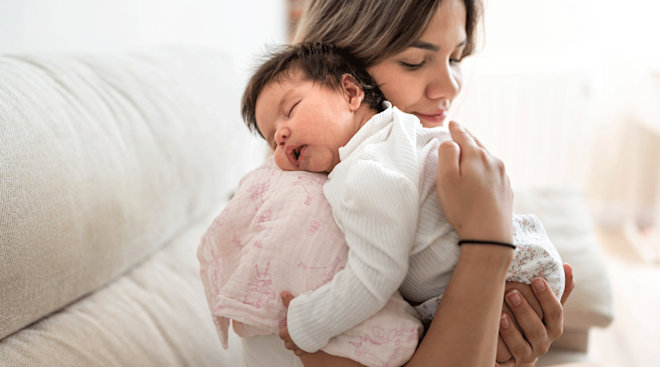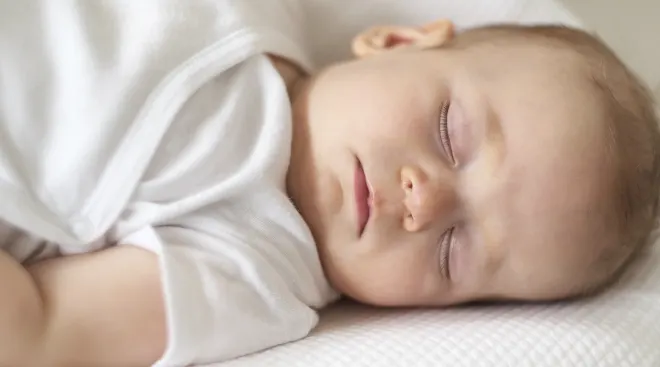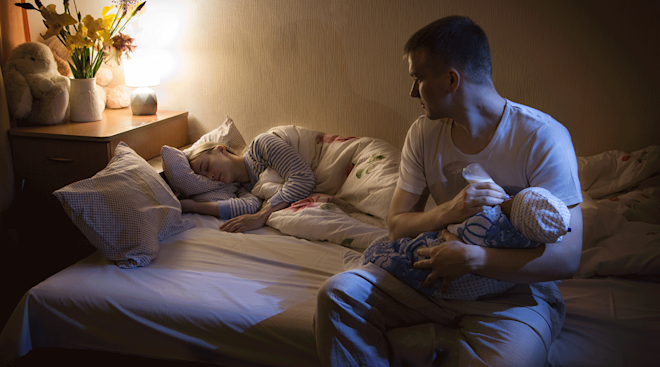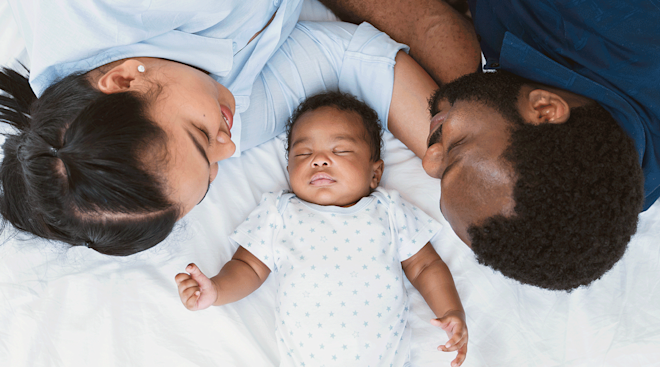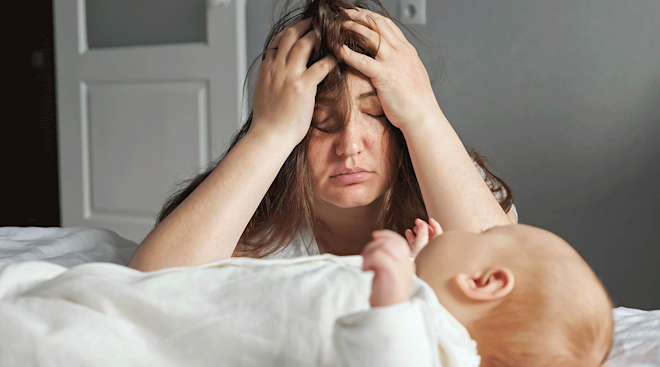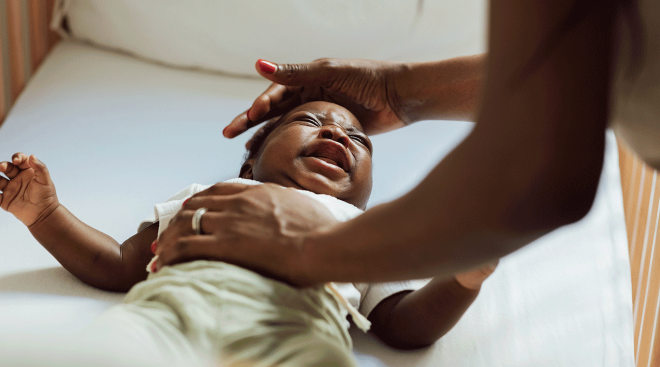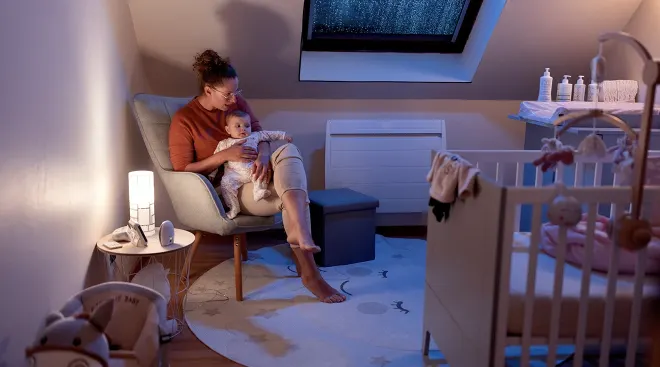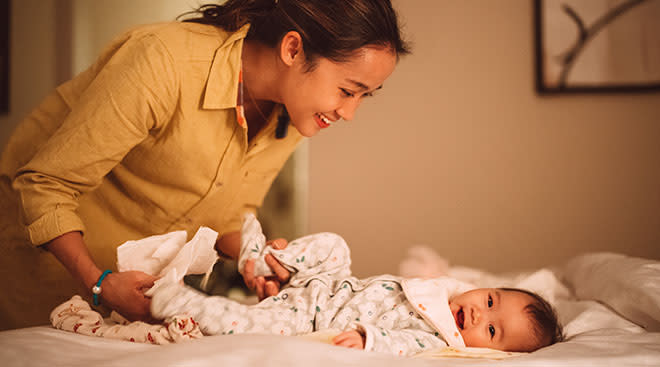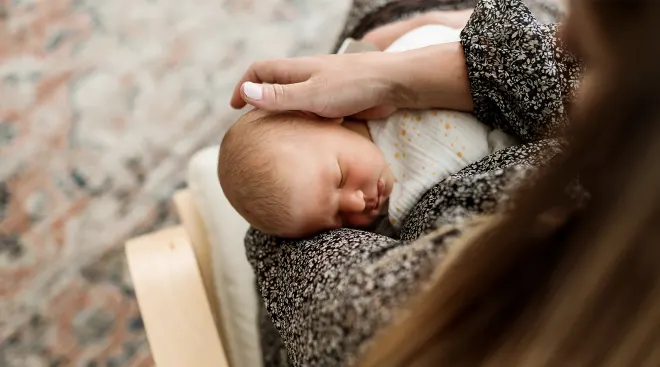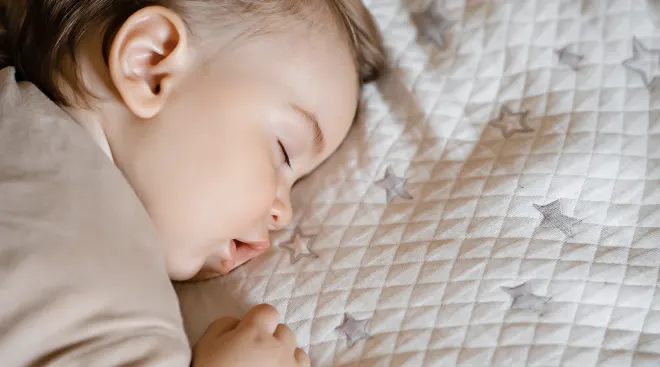Study: Here’s When You Should Have Bathtime if You Want to Kickstart a Good Night’s Sleep
Throw everything you know about sleep pre-kids out the window. Now that you have a tiny human on your hands, it’s a whole new playing field. And, ICYMI, a good night’s sleep for parents and baby is hard to come by. In fact, one study found that new parents don’t sleep well for up to six years after baby is born. Yikes. There isn’t any magic dust you can sprinkle to ensure you and your little one are well-rested come the morning, but there are some healthy sleep habits you can form to promote a good night’s sleep. The first order of business? Bathtime.
A 2019 study says the time someone takes a bath may impact whether or not they sleep well at night. The sweet spot? Ninety minutes before you usually go to bed. Biomedical engineers at The University of Texas at Austin analyzed thousands of studies linking water-based passive body heating (aka—bathing and showering with warm/hot water) with improved sleep quality. They found that bathing one to two hours before bedtime in water of about 104 to 109 degrees Fahrenheit can significantly improve your sleep.
The researchers reviewed 5,322 studies to explore the effects of water-based passive body heating on a number of sleep-related conditions, including:
- sleep onset latency (the length of time it takes to accomplish the transition from full wakefulness to sleep)
- total sleep time
- sleep efficiency (the amount of time spent asleep relative to the total amount of time spent in bed intended for sleep)
- subjective sleep quality
They then assessed the consistency between relevant studies and showed that an optimum temperature of between 104 and 109 degrees Fahrenheit improved overall sleep quality. When people bathed about 90 minutes, or one to two hours before bedtime, it was shown to hasten the speed of falling asleep by an average of 10 minutes.
Here’s the science behind it: Warm baths and showers stimulate the part of the body responsible for maintaining the body temperature. It causes an increase in the circulation of blood from the internal core of the body to the peripheral sites of the hands and feet, resulting in efficient removal of body heat and decline in body temperature. Which means, if baths are taken one to two hours before bedtime, they’ll help the natural process and increase one’s chances of not only falling asleep quickly, but also of experiencing better quality sleep.
Please note: The Bump and the materials and information it contains are not intended to, and do not constitute, medical or other health advice or diagnosis and should not be used as such. You should always consult with a qualified physician or health professional about your specific circumstances.
University of Texas at Austin, Take a bath 90 minutes before bedtime to get better sleep, July 2019
Learn how we ensure the accuracy of our content through our editorial and medical review process.
Navigate forward to interact with the calendar and select a date. Press the question mark key to get the keyboard shortcuts for changing dates.
































